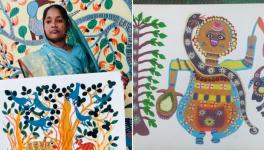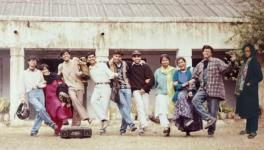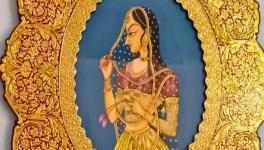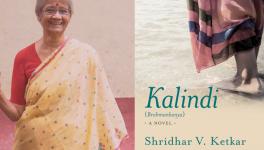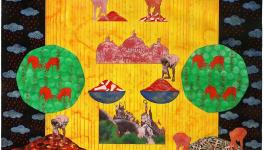‘Mother’ Resurrects Lost Humanity in Nagraj Manjule’s Poems
In the tradition of love poems in world literature, poetry was often associated with descriptions of lovers in relation to nature and its beauty; or love in these poems was manifested intensely through sexual metaphors in which lovers bodies are used as objects, manifesting the poetic imagination. More than necessary, two major themes—romance and grief—recurred in love poems across the world. If the romance was often gently sexual, the grief was intense, drawing from the experience of ‘separateness’ from the lover. A quest for wisdom, compassion, or simply intelligence, was rarely sought through love poems.
Consequently, a dialectics was created under whose influence later generations of poets were forced to perceive or imagine ‘love’ in the same way as previous generations wrote about it. If ‘love’ has a universal existence, then why was it not explored on the lines of wisdom or intelligence in many love poems? To me, the answer lies in the agency of a poet. Still more, it is the poet’s position in society that decides the purpose of ‘love’ for him or her and what they seek through it; especially when writing ‘love’ poems.
Also read | The Casteless Collective: Musicalising Anti-Caste Conscience
In the themes of ‘romance’ and ‘grief’ that dominate the genre of love poems, ‘romance’ appears as a profoundly elitist vision and ‘grief’ stands for a purely individual (human) feeling that stems from separation from a lover. Often, romance is exclusive, but grief is universal. In love, very few can afford romance. Grief is what most of us witness. Yet, ‘love’ is let loose from intelligence in our love poems. Not all of this was done intentionally. It was a result of the poet’s inability to overcome their separateness from the world.
Eric Fromm, a theorist of the Frankfurt School, says, “The experience of separateness arouses anxiety; it is, indeed, the source of all anxiety. Being separate means beings cut off, without any capacity to use my human powers. Hence to be separate means to be helpless, unable to grasp the world—things and people—actively; it means that the world can invade me without my ability to react.”1
Most poets do not acquire the ability to overcome this separateness because for them the experience of ‘separation’ comes only in relation to an individual: their lover. A breakthrough from this separateness can only be achieved when the poet has dealt with ‘separation’ in relation to the social. Such a paradigm shift from the lethargic phenomena of ‘love poems’ had long before been brought out by dalit literature. Because its writers witnessed and dealt with the horrible practice called untouchability; which meant being ‘untouched’ by the entire society. In the space of being ‘untouched’ by others, they have explored undiscovered dimensions of love and defined a profound meaning of ‘love’ for us in their ‘love poems’.
In their love poems, romance and grief are not merely individual, nor sexual, but essentially social. We must read the poems of Nagraj Manjule, because after reading them we enter a totally different world in which love is seen intelligently, felt with wisdom, and experienced rationally.
Look, How my mother Has furiously aimed at Deranged darkness —that comes upon running— With the embers Of her pale eyes
If I did not look into her eyes, Then, my dear My moon and stars Would have fallen and been trapped Still, into your dense hair.
This poem is remarkable and uniquely profound because the lover in it offers the poet the desired romance, but the ‘mother’ in it is a metaphor for his social location, his roots—the history that is impossible to separate from him. In it, the ‘mother’ is also a reminder of the assertion of the poet against the treatment he received as an ‘untouched’ amidst the entirety of society. Even if his assertion against injustice, once manifested in love-affair, has gotten ‘pale eyes’, it is nevertheless capable of liberating him from the uselessness of the romance of a lover’s “dense hair”, in which his dreams and aspirations in the form of the “moon and stars” “would have fallen and been trapped”.
Also read | From Mahars to Buddhists: The Culture of Protest
In this poem, the poet, while imagining the ‘love’ he desires, is fully aware of his history, his roots, and does not give up logic and reason even while imagining romance. The poet journeys backward, to regaining the roots, the source of his being. The poem challenges the notion of love as defined by Sigmund Freud via the Oedipus complex. This poem is more profound than Freud’s discovery because in it we are talking about a life which was ‘untouched’ for ages, we are talking about a man who has been ‘untouched’ for ages, deprived of ‘touch’ by fellow humans. To such a man, the meaning of life is found in wisdom rather than love, because what we call and understood as love may not necessarily have wisdom. Yet the poet knows: wisdom is never devoid of love. That is why he wrote ‘Eyes of Mother’. It is also a metaphor of ‘the history of untouchability’, without which the poet does not come to the full realisation of ‘love’.
Touch, especially the physical sort, which denotes his acceptance by society, is very crucial for a person whose history and existence is a part and parcel of ‘untouchability’ in India and which is also the primal factor of his alienation from the idea of love as a mere romantic or sexual act. For him, to be in love is to be in the constant struggle against ‘caste’. He expects: My beloved will support me energetically in assuming my virility whereas the need to earn the admiration or love of others will weave a valorizing web over my vision of the world2.
Yet, he could not help but face disappointment in love with a person from a caste ‘superior’ to his. Because, in such a love relationship, not only one has to abruptly destroy the idea of external beauty but also the psychological condition of being raised as a person of ‘caste’. Because being raised as the person of and in caste, one is alienated from his human-hood long before. But for a person who is ‘untouched’ by society, the virtue of achieving this human-hood lies in sacrificing his immediate desire to be loved. The poet writes in another poem:
…The dreams you have conceived Will not sprout in this soil, and I have not agreed to be bonsai
You take seeds of your dreams and leave, Search for a new fertile land, My barren land may someday become pregnant, Flowers will also bloom here, Dreams will come true, But until then I must turn my dream into a fertiliser and water And I must bury myself For my suppressed people….
In this poem, there is no element of hate. Even though the poet has realised that his lover is incapable of integrating into his history and the present, and is also likely to alter his history by fulfilling all his material needs, yet, even in love with her, he is not alienated from his history. It is because his idea of a woman is not the woman he is in love with. But it is imagined collectively with ‘suppressed people’, which includes his mother too. Nevertheless, he is hopeful for both, him and his lover.
Also read | Shindeshahi: Music More Important than Philosophy
The poet does not deny the scope of developing love between both. He suggests: the love between them can bloom only by sacrificing their ‘castes’, that made one of them superior and other inferior: a subject of pity; a man without equal power or privileges; a man, but one who is less than a human being in a caste society. Having realised the historical truth of his people, he has now overcome the idea of artificial love and gone beyond it to create a new life for him. He writes:
Now You are, for me, As if an old letter Of suicide
Nonetheless, he is equally aware of her importance as a partner in struggle, as the newest manifestation of mother, who protects him from all odds; the mother who helps him not be alienated from his historical self. The poem is intelligent too, in the sense that it accepts the truth of detachment from the lover. Yet it does not let separateness destroy the beauty they had collectively created. Hence, he writes:
I would have asked you If there was something to ask for But I regret That I do not have a uterus.
The poet has overcome his alienation. Uterus as a metaphor for mother (the one who produces life) strongly indicates his valour and prowess while integrating into his history and being. It is because his idea of love goes beyond the hegemonic idea of ‘woman as lover’ that the caste society has imposed on him. It is only possible when someone falls in love in order to resurrect his human personality. For him, love is not merely a relation with a person or a romantic exchange between two persons or sexual engagement in the presence of emotions and attachment. For him, love is mother, that essentially accepts him but also teaches him to assert, fight, grow and resurrect his lost human-hood in caste society.
A poet says it best through his poetry:
Rukmangda, Are you real Or you are just a covetous dusky shadow Of my dreams? Rukmangda, I heard that An orphan can see the mother Even in the stranger
Notes:1 The Art of Loving, Eric Fromm, 1956, Harper and Row.
2 Black Skin, While Masks by Frantz Fanon, 2008, Grove Press.
Yogesh Maitreya is a poet, translator and founder of Panther's Paw Publication, an anti-caste publishing house. He is pursuing a PhD at the Tata Institute of Social Sciences, Mumbai.
Get the latest reports & analysis with people's perspective on Protests, movements & deep analytical videos, discussions of the current affairs in your Telegram app. Subscribe to NewsClick's Telegram channel & get Real-Time updates on stories, as they get published on our website.









